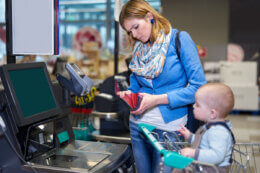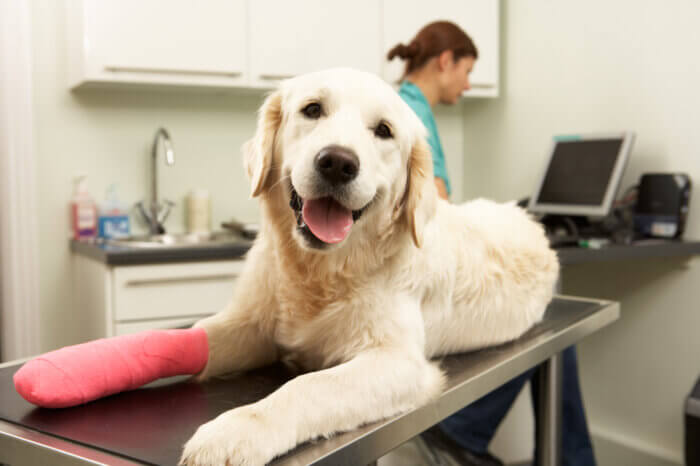
Easter may be the sweetest time of year for humans, but Compare the Market is warning families to be extra careful with their chocolate and goodies around cats and dogs, which can face an increased risk of illness during this period.
The Easter long weekend is one of the busiest times for vets and emergency clinics across the country and if your curious canine or kitty gets into your Easter stash, it could potentially cost you hundreds or thousands of dollars for treatment. The reason? Chocolate, hot cross buns and other Easter goodies can be toxic to our furry friends.
Compare the Market’s Executive General Manager of General Insurance, Adrian Taylor, said many pet owners may not be aware of risks to their pets over Easter, including tick bites, poisoning from eating human foods and other diseases.
“Whether you’re a first-time pet owner or have a dog or cat that’s ruled the roost at home for a while, there are many unsuspecting things that could increase the likelihood of your dog or cat requiring emergency care or veterinarian treatment over Easter,” Mr Taylor said. “While many families will tuck into hot cross buns, chocolate bunnies, party food and barbequed meat over the long weekend, they could harm your pets.
“The humble hot cross bun, which now comes in more flavours than you can poke a stick at, is one of the most unsuspecting hazards for cats and dogs at Easter. The traditional versions contain raisins, which can be lethal to our pets. But even some of the newer versions can contain ingredients like chocolates, lollies and other sweets, which can be a major no-no for pets.”
Speaking of sweets, Mr Taylor said that while resisting those puppy dog eyes can be hard, avoid feeding your pets chocolate at all costs.
“A piece of an Easter egg or a square of chocolate here and there may seem like a sweet treat for a pet, but things could quickly turn sour,” Mr Taylor said. “Chocolate contains an enzyme that dogs and cats find difficult to break down. Some of the symptoms they can experience include vomiting, a rapid heart rate, breathing difficulty, diarrhoea and more. Depending on how much your pet ingests, it could even prove life-threatening.”
Similarly, as many Australians partake in Easter barbecues and parties, Mr Taylor said it’s best to avoid feeding foods to pets from these events.
“Perhaps you’re sizzling up some snags on the barbie or indulging in a charcuterie board over the long weekend. While meats may seem harmless, a lot of barbecued protein can be high in fats and sugars, which don’t mix well with some cat and dog breeds and could lead to symptoms including upset stomachs, gastric problems and diarrhoea.
Food aside, there are other risks to pets over the Easter period. For example, ticks remain a threat to cats and dogs, particularly across the East Coast, where there’s been higher than usual rainfall.
“Vets are continuing to see animals presenting with toxicity from tick bites after recent rainfall and flooding,” Mr Taylor said. “There are a range of preventative medications available, which is strongly encouraged – especially if you’re hitting the road with your pets over the break.
“Don’t leave it to chance. Ensure your pet is up to date with their anti-tick medication.”
Recent Compare the Market research found 12.7% of pet owners take their pets away with them on holidays. Around 8% send their pets to a kennel, while 38% leave their animals with friends or families.*
Mr Taylor said a check-up at the vet could also be worthwhile if you are travelling with your pets over the break.
“Whether you’re putting your pets into pet accommodation or daycare or taking them with you on holidays, it’s really advised to have your pet’s vaccinations up to date.
“While the threat of diseases such as dog hepatitis, dog parvovirus, kennel cough syndrome and cat flu are prominent all year round, they’re something to be aware of if you’re taking your pet out of its typical environment.”
Mr Taylor added that pet insurance could help ease the financial burden if your pet does end up in the ER over the break.
“It’s no secret that visits to the vet don’t come cheap, with consultations often costing hundreds before any treatment,” Mr Taylor said. “Without an appropriate level of pet insurance, you could be left to fork out a significant amount of money out of your own pocket.
“And with some vets closing over the long weekend, the fee could be even higher at emergency clinics that remain open 24/7.
‘If you couldn’t afford a large vet bill upfront and don’t currently have pet insurance, it could be worth looking into. There are options to pay your premium in more regular instalments, which may be an option if you’re concerned about high upfront costs.
“As always, it’s important to do your research, as not all policies are the same and some may not be available for some pets.”
Consumers can use Compare the Market’s pet insurance comparison tool to compare a range of policies and providers in one place.
*Survey of 1,006 Australian adults, conducted in October 2024.
For more information, please contact:
Phillip Portman | 0437 384 471 | [email protected]
Compare the Market is a comparison service that takes the hard work out of shopping around. We make it Simples for Australians to quickly and easily compare and buy insurance, energy, and home loans products from a range of providers. Our easy-to-use comparison tool helps you look for a range of products that may suit your needs and benefit your back pocket.








